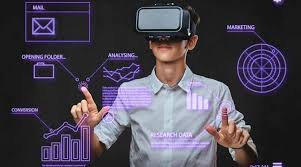Introduction: The Quantum Leap
As we step into 2024, quantum computing stands at the forefront of technological innovation, promising to revolutionize industries and solve complex problems that are currently beyond the reach of classical computers. With significant breakthroughs in quantum hardware and algorithms, the potential applications of this cutting-edge technology are becoming clearer. This article explores the latest developments in quantum computing and their implications for the future.
1. Recent Breakthroughs in Quantum Technology
In 2024, researchers and companies are making remarkable strides in quantum computing, particularly in improving qubit stability and error correction. Quantum bits, or qubits, are the building blocks of quantum computers, and their ability to exist in multiple states simultaneously allows quantum systems to perform calculations at unprecedented speeds.
One notable advancement comes from companies like Google and IBM, which have developed superconducting qubits that demonstrate increased coherence times, allowing for longer calculations without error. Additionally, advancements in topological qubits, which are theorized to be more stable and less susceptible to errors, are gaining momentum. These innovations are critical for creating more reliable quantum computers that can tackle real-world problems.
Furthermore, 2024 has seen the development of hybrid quantum-classical algorithms that leverage the strengths of both computing paradigms. These algorithms can optimize complex processes, such as supply chain management and financial modeling, leading to significant efficiencies in various industries.
2. Transformative Applications Across Industries
The implications of quantum computing are vast and varied, with potential applications spanning multiple sectors. In healthcare, quantum algorithms are being explored for drug discovery and personalized medicine. By simulating molecular interactions at the quantum level, researchers can identify promising drug candidates much faster than traditional methods, potentially leading to breakthroughs in treatment.
In finance, quantum computing has the potential to revolutionize risk assessment and portfolio optimization. With its ability to analyze vast datasets and complex financial models quickly, quantum systems can provide insights that enhance decision-making and mitigate risks in investment strategies.
Moreover, the field of artificial intelligence (AI) stands to benefit significantly from quantum computing. Quantum algorithms can accelerate machine learning processes, allowing for more sophisticated models that can analyze and learn from data in ways that classical computers cannot achieve. This could lead to advancements in natural language processing, image recognition, and autonomous systems.
3. Ethical Considerations and Challenges Ahead
While the promise of quantum computing is immense, it also presents significant ethical considerations and challenges. One of the foremost concerns is cybersecurity. Quantum computers could potentially break existing encryption methods, threatening the security of sensitive information. As a result, researchers are actively exploring post-quantum cryptography to develop encryption techniques that can withstand quantum attacks.
Additionally, the accessibility of quantum technology raises questions about equity and inclusion. As this technology matures, ensuring that its benefits are widely shared and not limited to a select few will be critical. Policymakers and industry leaders must work together to create frameworks that promote responsible development and equitable access to quantum computing resources.
Conclusion: A Quantum Future
As we navigate through 2024, the breakthroughs in quantum computing herald a new era of technological advancement. With enhanced qubit stability, transformative applications across various industries, and ongoing ethical considerations, the journey of quantum computing is just beginning. By embracing innovation while addressing challenges, society can harness the full potential of this revolutionary technology and pave the way for a brighter future.

